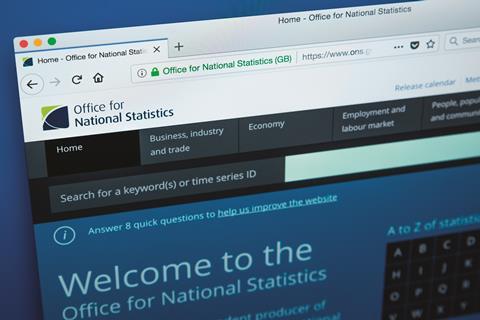Measuring the moving parts of the British economy is not an easy task and in principle we are blessed to have a single government agency, the Office for National Statistics (ONS), that undertakes this work on our behalf.

For a statistical body, it is surprisingly reticent to showcase the numbers about how much it costs to operate the agency. Reading its 2022 report and accounts, there is plenty of largely anodyne and rather meaningless guff on processes, including the agency’s view of biodiversity, but it takes it to around page 70 to establish that its annual cost runs to £500m-plus. There are some big projects in there such as the census, but it is interesting to see how much resource is applied to measuring the UK’s vital statistics.
From a UK macroeconomic perspective, the ONS is important because it is the prime longitudinal data that policymakers take into account. The Monetary Policy Committee (MPC) of the Bank of England (BoE) is one such grouping where its analysis and consideration of the data is most important to controlling inflation and the cost of capital.
Despite the headlines, the technical recession in H2 2023 does not really feel like one
Indeed, the lead officials at the BoE often lecture mere mortals on the fact that it is data driven, which for a body that totally misread the post-pandemic inflationary forces is quite extraordinary and begs questions as to what data it was looking at. If it was not so serious it could be quite funny, but the BoE is now reviewing its own forecasting capabilities in light of this serious policy misstep – one that will no doubt be repeated as the probability of keeping UK base rates too high for too long becomes increasingly apparent in 2024.

In this respect, the data is becoming increasingly politicised, something that would not be surprising to see in China or Russia, but is a development we do not wish to see in the UK. In this respect, ONS data on UK GDP comes to mind, notably so now that it has confirmed a technical recession in H2 2023. That technical recession still produces much hot air from political camps that are pro and anti UK membership of the EU.
It was, therefore, beyond comedy when the ONS quietly but materially revised UK GDP data upwards after the pandemic, something the BBC and the Financial Times kept quite quiet about, notably weakening the pro-remain rhetoric on the economic impact of the UK leaving the EU. One senses that a much more deleterious impact has been the sustained incompetence of a failing Conservative government that may get its comeuppance in the 2024 general election.
What recession?
The technical recession in H2 2023 is worth thinking about, because despite the headlines, it does not really feel like one. The UK is subject to record public expenditure (whether or not the money is wisely expended is another matter), while the labour market has been the key distinctive, positive feature of recent economic times. Indeed, as well as revising GDP data, the ONS is seemingly pencilling down UK unemployment rates. So, the UK economy is subject to a very firm labour market and, after the inflation spike, rising living standards since July 2023. Recession?
Looking at UK consumer markets, there is a notable difference between the ONS Consumer Prices Index for, say, food, and the measures of industry specialists like Kantar and NIQ, which both consistently come out with figures several percentage points lower than the official data.
When it comes to clothing and food categories in the UK, we much prefer non-ONS datasets, as we see far too much volatility in ONS Retail Sales updates, which incidentally displayed a slump for December, contrary to the main thrust of solid new year trading updates from major British retailers. For good measure, the January ONS Retail Sales figures showed a surge, which also feels inaccurate.
So, from a counting perspective, there appears to be a problem, given scepticism on ONS UK Retail Sales, Labour Force and GDP data, to mention just three series. If so, the basis upon which UK monetary policy is being set may be even more fragile than the somewhat lunatic BoE MPC realises. All of which makes for a potentially very British farce, given the unwelcome politicisation of data, too.
The ONS is important and needs support and encouragement to best position itself to measure and so assist policy processes in this nation. However, when the maths teacher struggles to count, the impact on the whole class is damaging.





























No comments yet